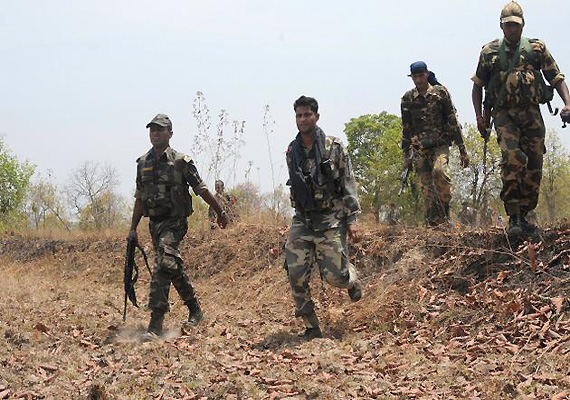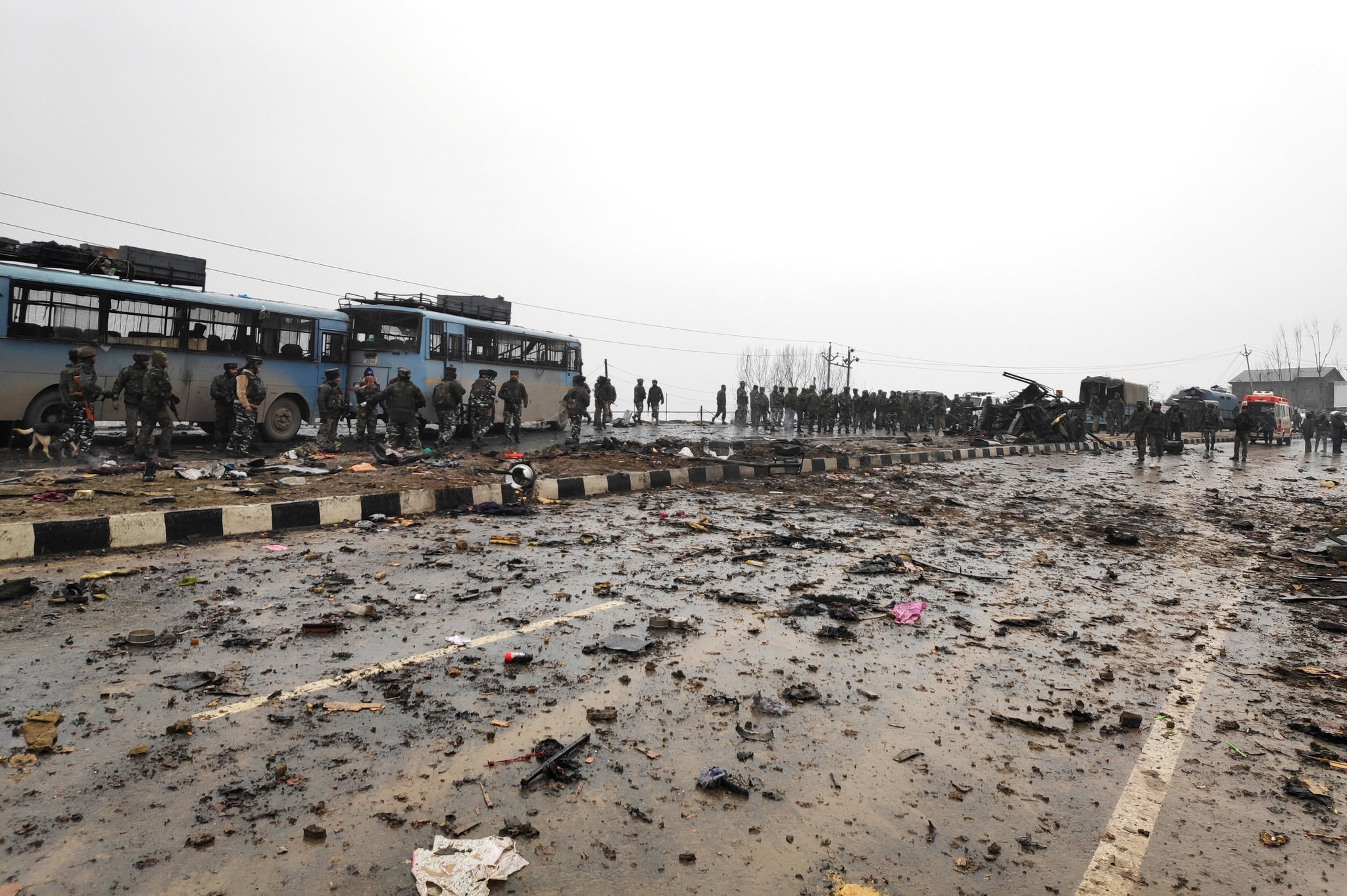

In a major joint operation conducted by Odisha and Chhattisgarh police, along with CRPF personnel, 10 Maoists were gunned down in the border areas of Nuapada district in Odisha. The operation was launched following intel received on the night of January 19, which indicated the presence of a large number of Maoists in the Kularighat reserve forest of Chhattisgarh. Two female cadres were initially neutralized, with 16 Maoists killed in total so far, and the number is expected to increase as the search and combat operation is still ongoing.
Victory Against Maoist Insurgency: Joint Operation Kills 10
Background
The Maoist Naxalite insurgency has been a persistent threat in India for decades, operating primarily in the central and eastern states. Chhattisgarh and Odisha, neighboring states, have both been heavily affected by Maoist activities. In recent years, security forces have intensified their operations to combat the insurgency.
Joint Operation
On the night of January 19, 2023, a major joint operation was launched by the Odisha and Chhattisgarh police, along with Central Reserve Police Force (CRPF) personnel. The operation was based on intelligence indicating a large Maoist presence in the Kularighat reserve forest of Chhattisgarh.
As security forces entered the forest, they encountered heavy resistance from the Maoists. In a fierce gun battle, 10 Maoists were killed, including two female cadres. The operation is still ongoing, with search and combat efforts continuing.
Significance
The joint operation represents a significant success against the Maoist insurgency. It highlights the coordinated efforts of security forces from multiple states and demonstrates their determination to confront the threat. The elimination of 10 Maoists weakens their organization and undermines their ability to carry out violent attacks.
FAQs
1. What is the Maoist insurgency? A: The Maoist insurgency is a communist-inspired rebellion against the Indian government. The Maoists seek to overthrow the state and establish a socialist society.
2. Why are Chhattisgarh and Odisha affected by the insurgency? A: Chhattisgarh and Odisha have a strong tribal population and high levels of poverty, providing fertile ground for Maoist recruitment. The mountainous terrain in these areas also provides a sanctuary for Maoist groups.
3. What are the tactics of the Maoists? A: The Maoists use guerrilla warfare tactics, including ambushes, landmine attacks, and extortion. They often target government officials, security forces, and civilians perceived as supporting the state.
4. What is the impact of the joint operation? A: The joint operation has dealt a major blow to the Maoist insurgency in Chhattisgarh and Odisha. It has eliminated key leaders and weakened the organization's capabilities.
5. What are the ongoing efforts to combat the insurgency? A: Security forces continue to conduct operations against Maoist groups. The government is also implementing development initiatives to address the underlying causes of poverty and marginalization that contribute to Maoist recruitment.

After the devastating terror attack in Pahalgam, Jammu and Kashmir, India has suspended the 1960 Indus Waters Treaty with Pakistan. This decision was made during a key meeting chaired by Union Home Minister Amit Shah, with discussions on potential actions being taken against Pakistan. As tensions between the two countries continue to escalate, Indian leaders have condemned Pakistan for their involvement in the attack and have vowed to take strong measures in response.

The Indian Army made its first major move since the Pahalgam terror attack on April 22, as they killed top Lashkar-e-Taiba (LeT) commander Altaf Lalli in an encounter in Jammu and Kashmir's Bandipora district. The security forces are on the hunt for the terrorists responsible for the brutal killing of 26 civilians and have launched a massive anti-terror operation. In other developments, Indian Army Chief General Upendra Dwivedi visited Srinagar for a security review meeting and the authorities demolished the houses of two suspected terrorists involved in the Pahalgam attack.

In a hearing at the Supreme Court, the bench rebuked Congress leader Rahul Gandhi for his "irresponsible" comments about freedom fighter Vinayak Damodar Savarkar. The judges highlighted the need to show respect for India's freedom fighters and questioned whether Gandhi was aware of his grandmother and Mahatma Gandhi praising Savarkar. The court also stayed an Allahabad High Court order that refused to dismiss a lower court's summons against Gandhi over his alleged remarks about Savarkar.

The Supreme Court has stepped in to warn Congress MP Rahul Gandhi over his comments about India's independence activist Veer Savarkar, staying a trial court's summons to the politician. The top court emphasized that Savarkar is a highly respected figure in Maharashtra and stated that no one would be allowed to make derogatory remarks about freedom fighters. The court also pointed out that Gandhi's family has had a history of praising Savarkar and Gandhi himself has been warned that the court will take suo motu cognizance of any such remarks. Additionally, the article also mentions an attack in Jammu and Kashmir that has led to heightened tensions between India and Pakistan.

In a successful operation by the security forces, a Lashkar-e-Taliba (LeT) terrorist associate, identified as Altaf Lalli, was killed in an ongoing encounter in the Bandipora district of Jammu and Kashmir. The encounter began after the security forces received intelligence about the presence of terrorists in the area. Two security personnel have also been injured in the exchange of fire and are currently undergoing treatment at a nearby hospital. The clash highlights the continued efforts of the security forces to combat terrorism in the region.

The Telangana-Chhattisgarh border is a hotbed of tension as security forces step up their efforts to root out Maoist activity from the region. Top Maoist leader Hidma is the target of current high-security operations, with forces strategically advancing through previously inaccessible areas. With mounting pressure, sources indicate that the hold of the Maoists in the region is gradually weakening, making for a tense and critical situation.

As the nation grapples with the aftermath of a terror attack in Pahalgam, security forces are undertaking a massive operation in the dense Karregutta hills forest to eliminate the heart of Naxal command. This operation, involving 7,000 personnel and cutting-edge technology, aims to strike a blow at Naxalism by targeting top leaders of the PLGA Battalion No. 1. This bold move by the CRPF, with the Director General personally overseeing the operation, marks a turning point in the fight against Maoist insurgency. With five Naxals already killed and more likely to come, the operation is being hailed as a decisive victory and could potentially spell the end of Naxalism in India.

The US Government has publicly criticized The New York Times for its reporting on the recent terror attack in Pahalgam, Kashmir, calling attention to the difference between the newspaper's use of "militant" instead of "terrorist." This choice of words is not only misleading but also minimizes the severity of the attack, which was claimed by a Pakistan-based group with links to Lashkar-e-Taiba. The US House Foreign Affairs Committee took to social media to point out the error and highlight the real nature of the attack, noting that it has significant implications for regional security.

Right-wing Hindu groups VHP and Bajrang Dal have given an ultimatum to a housing complex in Mumbai to remove their Kashmiri Muslim security guards within 48 hours, citing them as a potential threat to the residents. If they are not removed, the groups have threatened to take matters into their own hands. The police are investigating the situation while the security company handling the complex's security is considering its response to the threat. The letter from the Hindu groups also cites recent incidents of Hindu killings in Jammu and Kashmir as a reason for demanding the removal of the security guards.

Two-time Olympic medallist Neeraj Chopra faced backlash after inviting Pakistan's Arshad Nadeem for the Neeraj Chopra Classic. Chopra clarified that the invitation was sent before the tragic Pahalgam attack and was purely based on Arshad's achievements as an athlete. He expressed his anger at being questioned about his patriotism and his family being dragged into the matter. Adding that his country and its interests will always come first, Chopra extended his condolences to the families of the victims and called for justice to be served. He also urged people not to believe false narratives created by certain sections of the media and stated that his love for his country cannot be doubted.